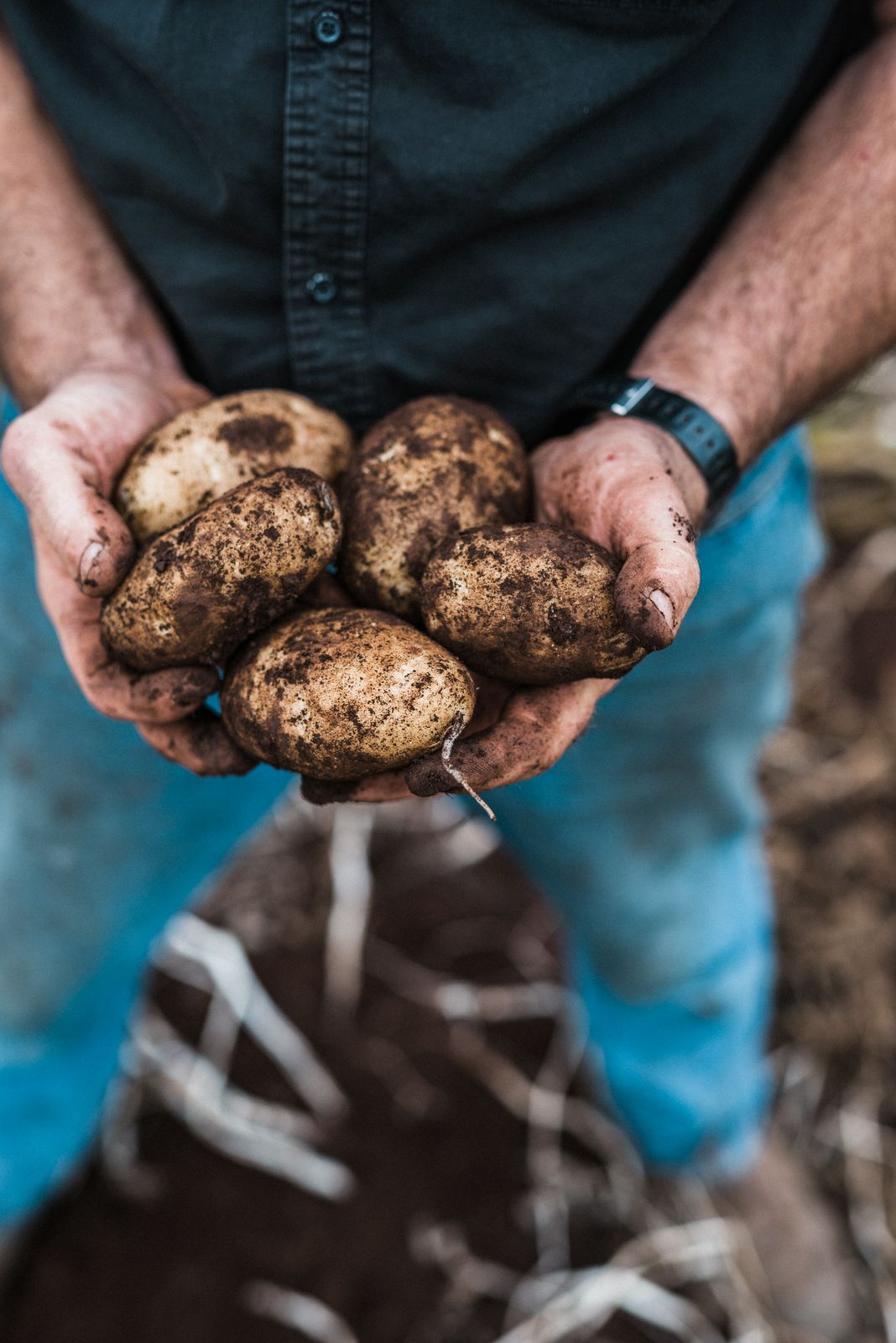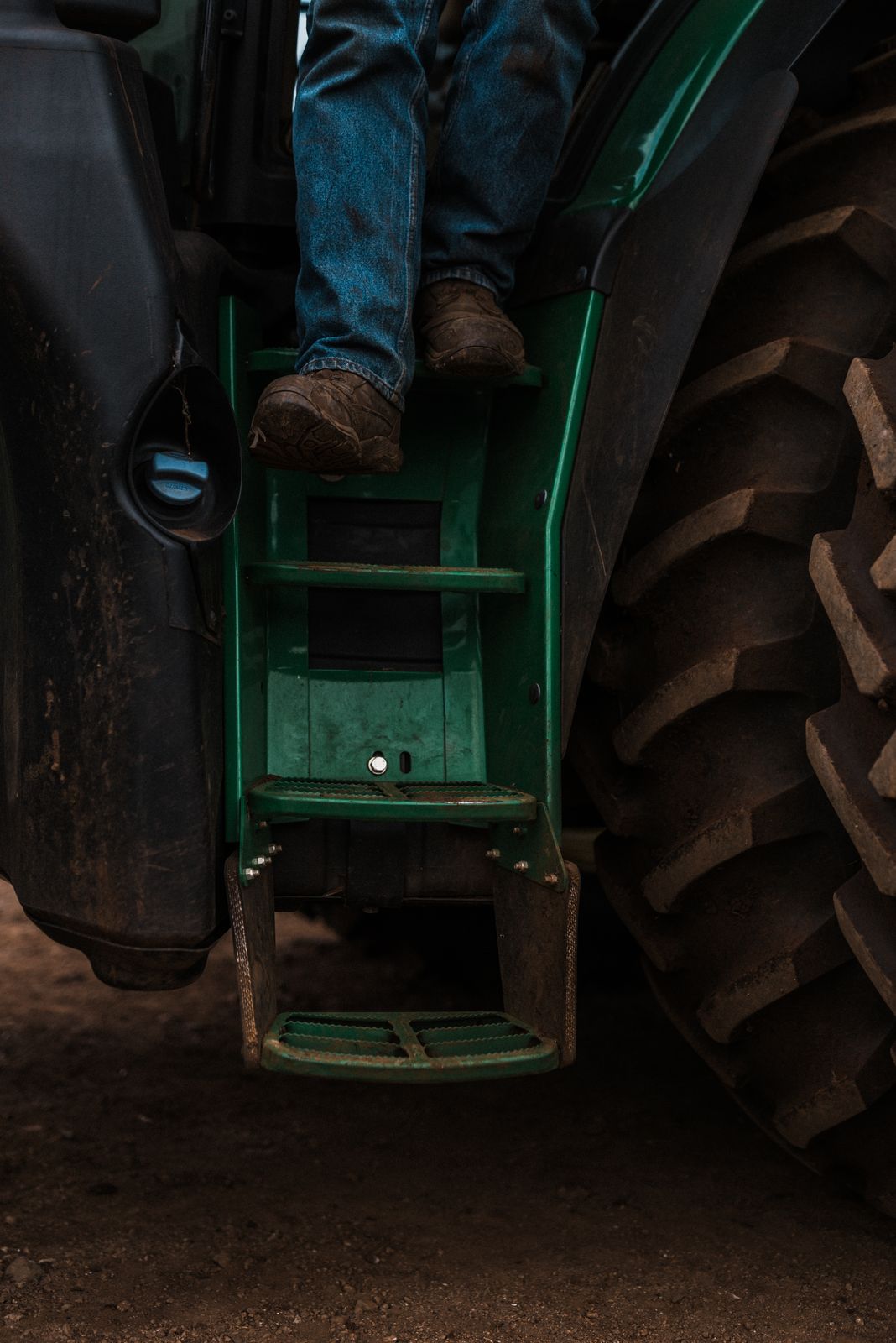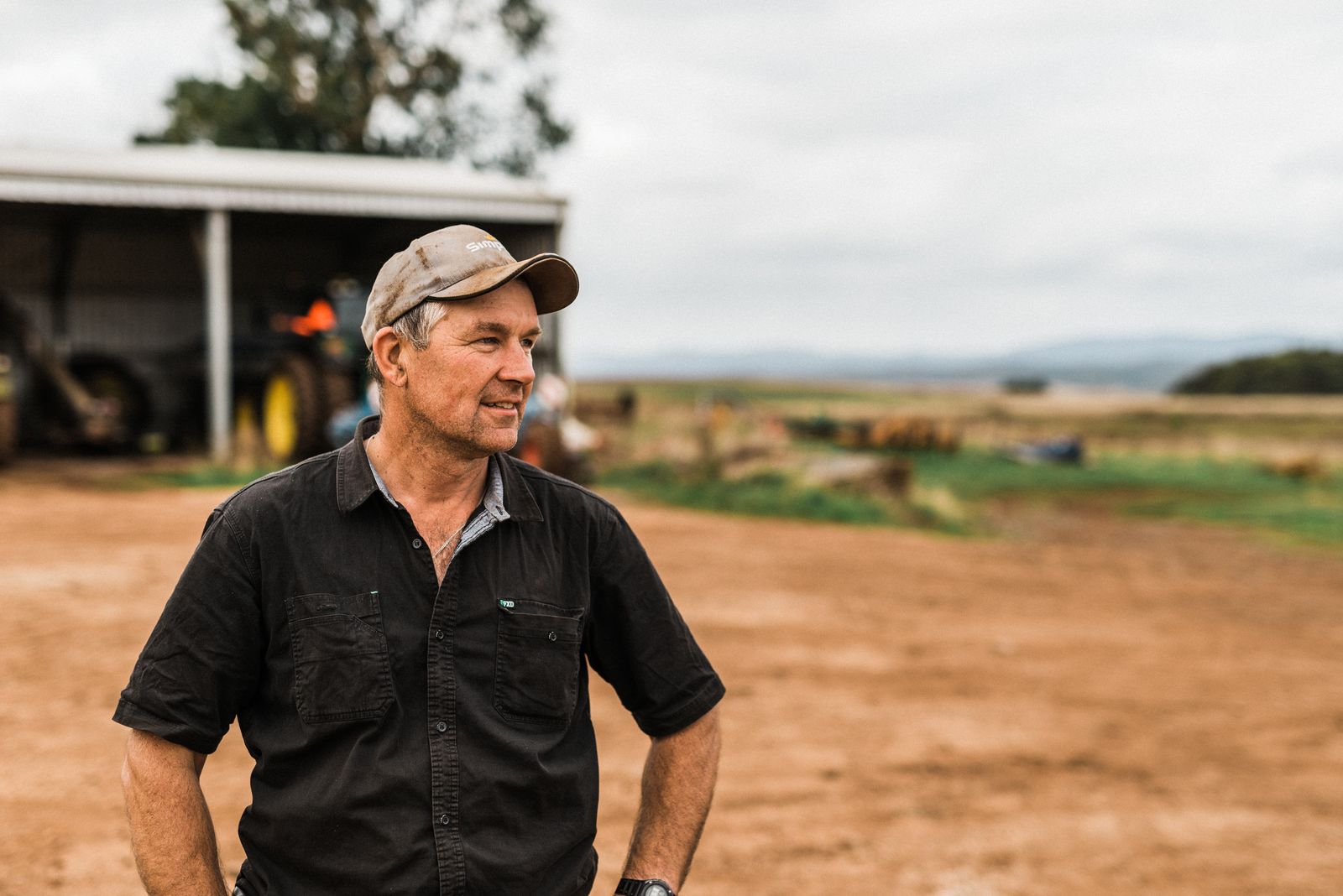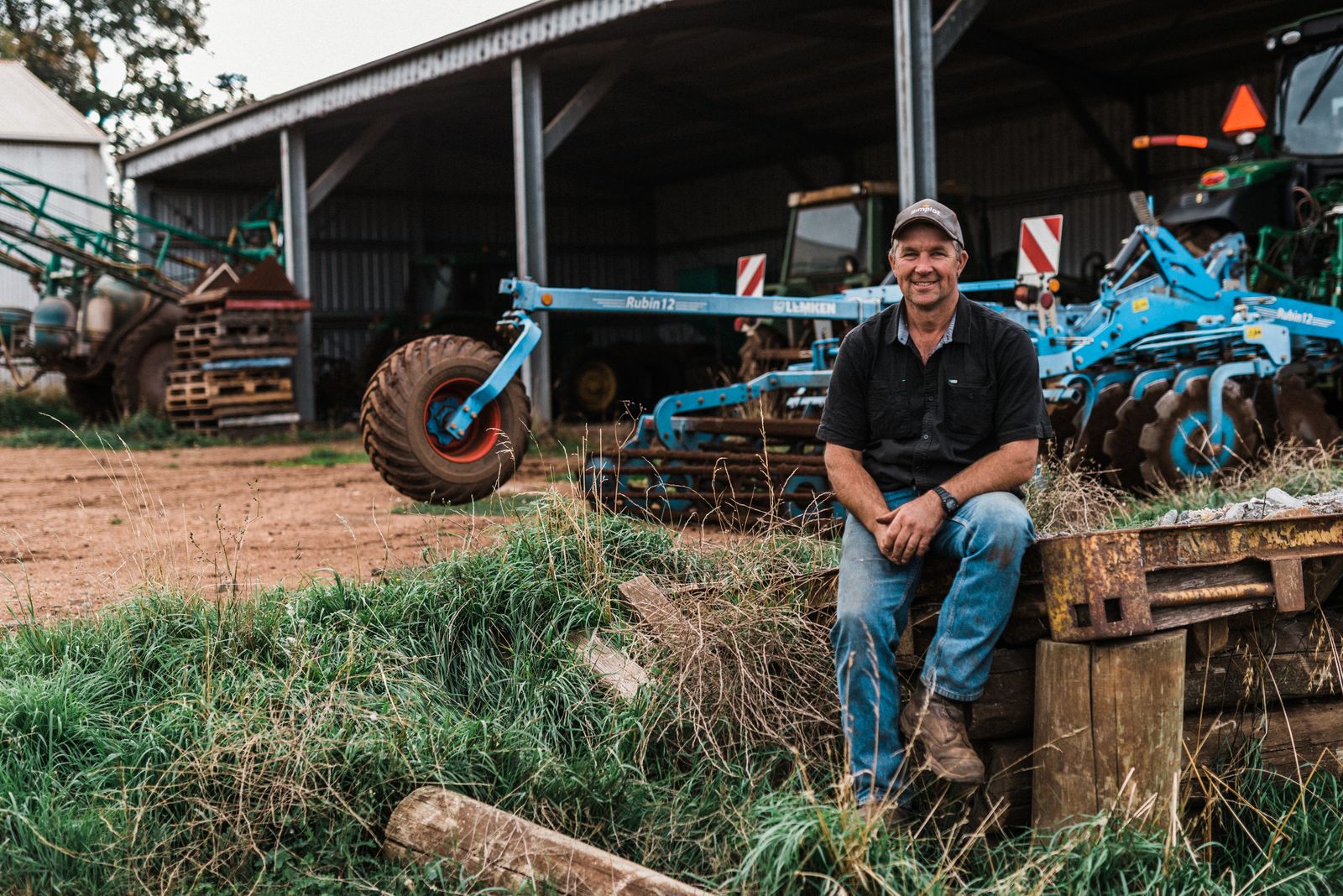Scott Rockliff: Embracing technology key to Tassie potato grower’s success
Scott Rockliff knows a thing or two about potato growing. The sixth-generation grower from Sassafras in northern Tasmania has taken the reins of Skelbrook Produce from his father Bill, and over the past 20 years has added a new dimension to the business – freight. Scott spoke to AUSVEG about Skelbrook Produce, the challenges he faces and his passion for on-farm innovation.
Fast facts
Name: Scott Rockliff
Location: Sassafras, TAS
Works: Skelbrook Produce
Grows: Potatoes, poppies, beans, peas, broad beans, baby carrots and wheat
For six generations, the Rockliff family has been growing potatoes along the north-west coast of Tasmania in Sassafras, a 200-year-old town renowned for its food and wine production.
A lot has changed since Scott Rockliff’s ancestors established the original farm in the 1800s. Nowadays, innovation is a must – understanding the latest in technology required for potato growing and thinking outside the square to produce a consistent crop is essential.
After taking over the management of Skelbrook Produce from his father Bill around six years ago, Scott and his wife Belinda now operate a potato contract planting and harvesting operation, together with a freight transporting business that carries potatoes (along with other freighting opportunities). Skelbrook Produce consists of two farms spanning 350 and 200 acres respectively.
The contracting business digs about 8,000 tonnes of potatoes annually alongside Scott’s freighting venture, which has grown significantly in recent years.
In addition to potatoes, Skelbrook Produce grows poppies, beans, peas, broad beans, baby carrots and wheat.
Moving forward
After purchasing trucks from a potato-freighter nearly two decades ago, Scott decided to expand this side of the business and upgrade his equipment to comply with occupational health and safety regulations as well as increase productivity. He explains why he made that initial investment in trucks.
“A lot of the time the biggest problem with potato carting is having trailers under the harvester. With a lot of other contractors you end up waiting and you’re paying crew on the harvesters to wait around for the trailers. Whereas when I have control of my own trucks, I don’t have that downtime in waiting,” he says.
“As things progressed, my trucks were getting a bit older and the way that the laws are now, you’ve got to have better gear to be running up and down the road.
“We’re in our second year of being reasonably big. I’ve got a partner who runs the truck side of the business now, and it seems to be working reasonably well.”


Grower challenges
Scott says the biggest issue potato growers have faced over the years is that the earnings from their product have stagnated.
“We’re not getting any more money for our product. We’ve really had to increase in capacity; a lot of our paddocks now are twice the size of what they used to be – they’re eight hectares instead of four, and you end up growing more to make the same amount of money that you used to.
“This is because the profit margins aren’t in most of the crops. Our input costs have gone up but the end product – what we get paid – hasn’t increased as much as it probably should have done, which makes it a bit tougher.
“You can’t grow an average crop. You’ve got to strive to have a good crop now to make a dollar out of it; otherwise it ends up being an exercise.”
In an attempt to combat this challenge, Scott has embraced technology on his farm including operating a three-row spud planter, which has increased yield.
He added that it was important to not only embrace tractors and ground working equipment but other larger inventions such as the Robot for Intelligent Perception and Precision Application (RIPPA), which the University of Sydney’s Australian Centre for Field Robotics developed for weed management in the vegetable industry.
In the biosecurity space, maintaining disease resistance on-farm is important as well as keeping pests at bay.
“We rake up trash from the crops and burn it once the crops have been harvested, particularly with the poppies. We do the same with wheat crops; some wheat crops we leave through the winter as a cover crop,” Scott says about his farm biosecurity measures.
“You have to try and keep your gear as clean as you can from farm to farm and know which weeds are in different paddocks. You’ve just got to keep your finger on the pulse if you can. Otherwise it’ll turn around and bite you.”
Scott points to the latest fruit fly incursion in Tasmania and tomato potato psyllid, which was discovered in Western Australia in 2017.
“Our biggest concern is now the fruit fly is here, we then worry about the tomato potato psyllid and whether it’s going to come into Tasmania or not. Hopefully it won’t, but who knows?” he says.
“Hopefully biosecurity measures can keep that out. It’d certainly make it easier (for the potato industry) down the track.”
"With farming, you’ve got to be committed to it and passionate about it. If you’re not passionate about it, you might as well not bother because it’s what drives you to do the work at the end of the day."
Innovation in focus
Experimenting with equipment and building on-farm machinery are activities that Scott enjoys.
“I like to be a bit innovative in the industry and try new things. I can be pretty handy in the workshop – we can change or modify something for it to do a better job,” he says.
“I always say there’s not one piece of gear that you can buy – whether it’s something you can work ground with or a harvester – without modifying it by a reasonable amount so it works for your conditions.”
An example of this innovation is a moulding system that had been implemented to keep out potato tuber moth and prevent potato greening, which can occur when tubers are exposed to sunlight.
“We always used to have trouble with greening and potato moth; the top soil could get potato moth or the ground cracks because the green tubers were sticking out the top. So I came up with a better moulding system.
“Now that’s taken off – I think that same system is now on at least eight planters around the state. They’ve been pretty impressed with the job that it’s doing so that probably stands out as my biggest win,” Scott says.

Looking ahead
At the moment, Scott is simply focused on making the farm a worthwhile investment and perhaps expanding when opportunities arise.
“We’re leasing a bit of ground now and we grow 2,800 tonnes of potatoes for Simplot. I suppose it’s just being able to maintain that, and try to get a foothold in some of these farms. Whether we buy more farms down the track or we increase production again, I don’t know,” he says.
Scott’s son has just turned 13 and the decision to become a grower is entirely up to him, Scott says.
“He is showing some interest but if he doesn’t want to do it, he doesn’t have to do it. It’d be great if he did but we’re not pressuring him at all to do anything down the road.
“With farming, you’ve got to be committed to it and passionate about it. If you’re not passionate about it, you might as well not bother because it’s what drives you to do the work at the end of the day.”
This grower profile first appeared in the leading magazine for the Australian potato industry, Potatoes Australia. If you’d like to subscribe to receive a new edition of Potatoes Australia in your mailbox every two months, use our online subscription form!
Photography credit: Flick + Dave

